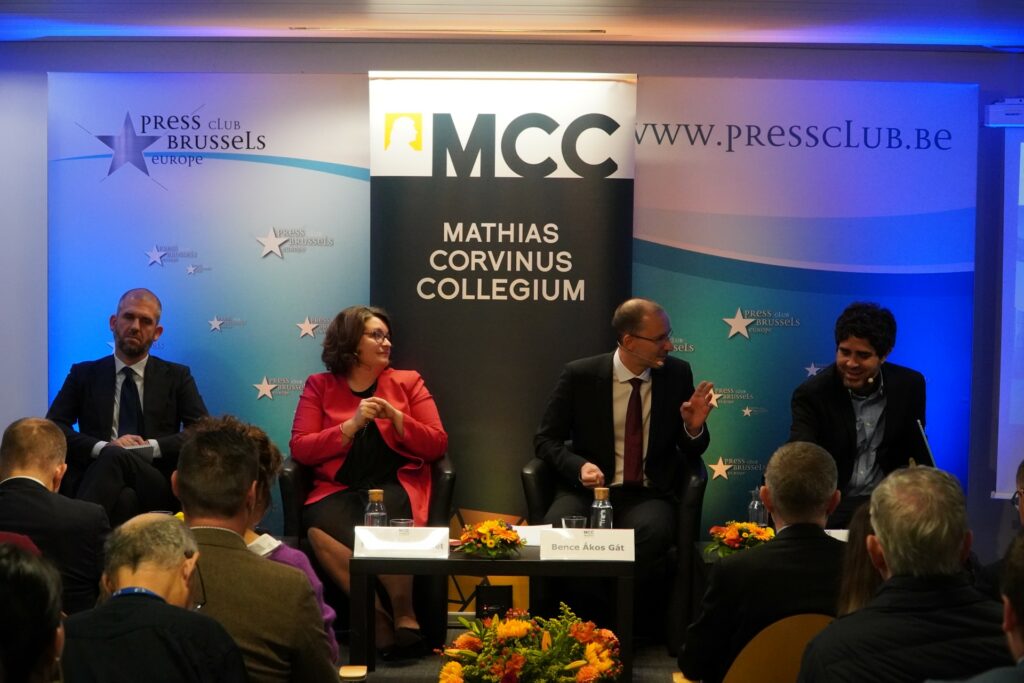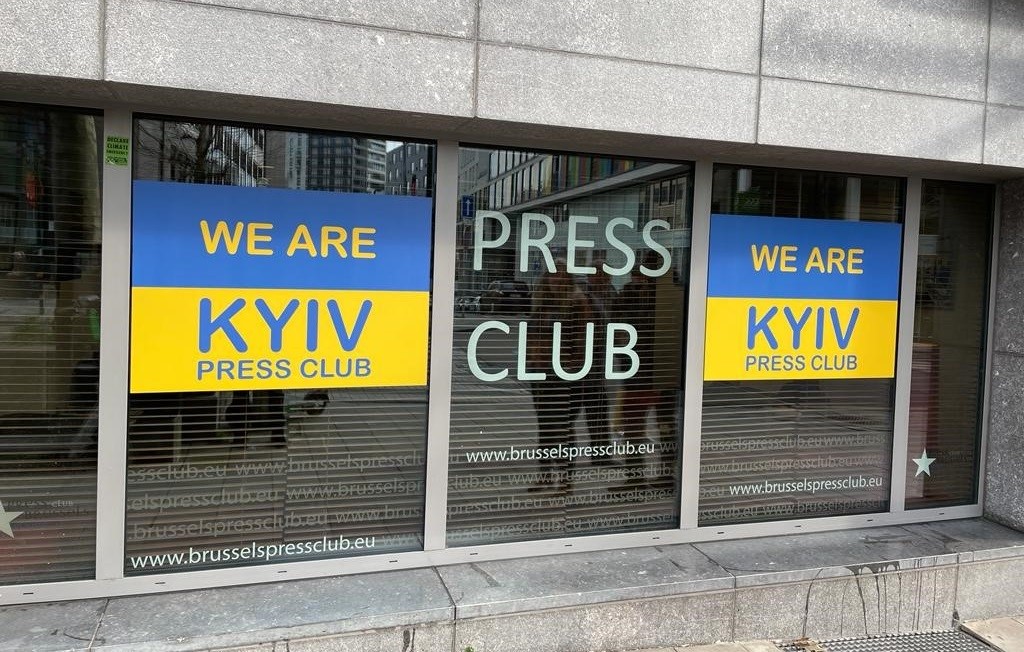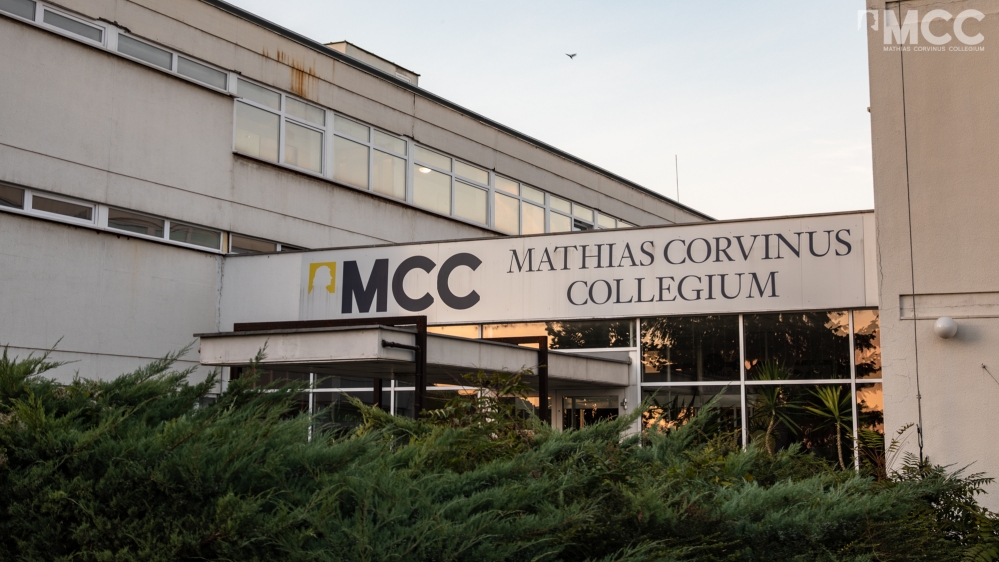The European Commission has used crises that have hit the EU to assume more competencies at the expense of the EU Member States, according to a recent report published by think-tank Mathias Corvinus Collegium Brussels (MCC).
Named after a Hungarian king, MCC is an educational institution and research centre in Budapest. It has close ties to Victor Orbán's government, which is a substantial donor. MCC Brussels was founded in 2022 with a commitment to platform critical debate about the future of the Europe.
The report, titled 'The Silent Coup: The European Commission’s power grab’, was presented at Brussels Press Club Europe by its author Thomas Fazi, an Italian journalist. Fazi claims that the severe crises in the last 15 years, in particular the COVID-19 pandemic and the war in Ukraine, have led to an increase in the scope of the Commission’s competences. Even more, this process was not driven by responses to unprecedented crises to coordinate EU measures but a form of “competence creep” or “power grab”, with the Commission president in the driving seat.
He described this trend of “integration by crises” as a threat to Europe because it leads towards “supranationalism” without any formal treaty changes and happens without democratic debate. For Fazi, this has taken place not by chance but by design. “The Commission emerged more powerful from the crises and became a geopolitical Commission.”
"We have witnessed a game-changing transfer of sovereignty from the national to the supranational level, at the expense of democratic control and accountability,” Fazi surmises. The report highlights criticism of Ursula von der Leyen’s role in the joint procurement of vaccines during the pandemic and the Commission’s refusal to disclose her emails with the vaccine companies. While the joint procurement might illustrate a lack of transparency or financial mismanagement, it was done on behalf of Member States.
In fact, for those following the unfolding crises – be it vaccination campaigns during the pandemic and sanctions against Russia’s war of aggression – the Commission’s actions were often slow, gradual and too little, and hardly show any intent of a power grab or “coup”.
The Brussels Times: The report focuses on recent crises as examples of emergency situations that allegedly have been used by the Commission to grab more power. How does this show a power grab by design if it required agreement from the Member States?
Fazi: “The central role assumed by the Commission in the management of these crises was far from slow and gradual. In the pandemic and the Ukraine war, the Commission took a leading role from the get-go. Throughout the pandemic, the Council rarely tabled solutions of its own. Rather, it endorsed actions and proposals already made by the Commission”.
“Same with the Ukraine crisis. It’s a matter of public record that von der Leyen immediately took on the role of EU ‘commander in chief’ (despite the Commission having no direct jurisdiction over defence and security issues), assuming a very strong political stance that did not reflect the different views that existed within the Council.”

The panel at the debate at Brussels Press Club Europe, 11 September 2024
Hungary was a Member State which broke the ranks of solidarity with Ukraine by vetoing decisions on military and economic support. But Fazi sees it differently: “The Commission President single-handedly set the tone on the issue, putting Member States under heavy pressure to conform. There was nothing ‘slow and gradual’ about the roll-out of the sanction regime.”
“It’s of course true that this power accrual by the Commission required the agreement of the Member States. In fact, it is a natural consequence of the path-dependent nature of EU integration. The simple fact of belonging to a ‘multinational club’ like the EU inevitably leads to calls for a common EU-level supranational response, by further empowering the Commission.”
Fazi does not think he is saying anything controversial: “I’m simply noting a fact. Whether this happened by design or not could even be considered a trivial matter, what matters is that it happened – even it was by accident or as a natural reaction to crises. Besides, intention is very hard to prove in all matters of life.”
The Brussels Times: How can the Commission extend its powers and competencies if there are checks and balances in the EU system in the form of co-legislators, the European Parliament and the Council, and gatekeepers such as the European Court of Justice (ECJ) and the European Cout of Auditors (ECA)?
Fazi: “The fact that the EU has often acted beyond its legal constraints in responding to crises is, again, a matter of public record recognised by scholars of European integration.”
“As for the ECJ, it’s well-known that the Court has long had a bias towards supranationalism, promoting the supremacy of EU law over national laws and almost always ruling in favour of ‘more Europe.’ The ECA seems to have little interest in holding the Commission accountable.”
The Brussels Times: If there is no unanimity among the EU Member States, no legislation proposed by the Commission can be enacted and normally the legislation process drags on until a compromise solution is agreed. What evidence is there that the Commission enforces legislation on its own?
Fazi: “Aside from the fact that EU institutions have often acted extra-legally and that a lot of what the Commission does doesn’t necessarily involve legislative action, the point is precisely that in times of crisis we have seen many instances of the Council rubber-stamping the Commission’s proposals due to the perceived need to act swiftly and decisively. The sanctions packages are good examples of this.”

Brussels Press Club Europe, credit: The Brussels Times
The event at the press club gathered a large audience because of the report’s provocative title. Its Eurosceptic narrative is associated with Patriots for Europe, the new political party group formed after the European Elections in June. With 84 MEPs from far-right and populist parties in 12 EU Member States, the group became the third-largest group in the European Parliament.
French MEP Mathilde Androuët from the far-right National Rally, the biggest party in the group, participated in the panel. She accused the Commission of becoming and acting as a state against the EU Member States, “with its own currency, hymn, and foundation myth”. “But it’s not a state with clear borders; its people are foreigners, preferably illegal migrants.”
“The EU has forgotten Europe’s glorious history and its Christian legacy,” she claimed and lamented the “deconstruction of colonial narratives”. While Androuët wants to defend national identity, she ignores the common European identity of EU citizens and their often-multiple identities. “For an EU supporting peace, it’s showing a hawkish position,” she said, referring to the support to Ukraine.
She has not given up on changing the EU. “I’m patient, as a politician my job is to come up with solutions. We should use the weapons of our enemies, start cultural wars, denounce the lobbyists and create our own NGOs. In schools we should teach students love for their national history.” The latter is a controversial point and the reason why the House of European History was created in Brussels.
The Brussels Times: On what points do you agree, respectively disagree, with MEP Mathilde Androuët?
Fazi: “While I share some of her concerns about the impact of the EU on the traditional values and national identities of European nations, and about the impact of immigration on social cohesion, my criticism of the EU has always focused more on its negative impact on the democratic process and the way in which it imposes a damaging neoliberal social and economic agenda on member states.”

